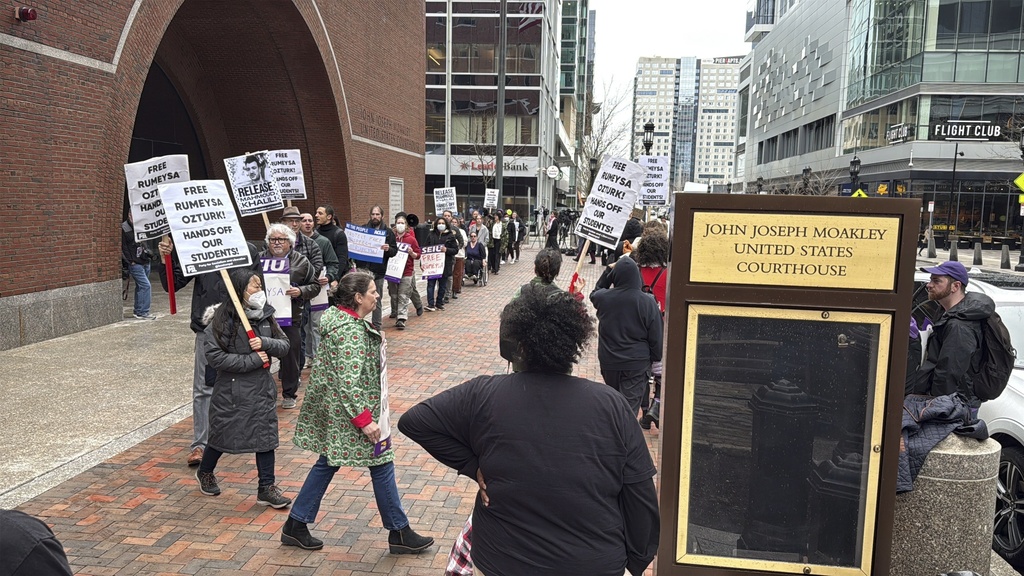What should news organizations do when a reporter asks a publication to take down past stories or remove bylines for fear of arrest, deportation, or other government harassment?
Since Donald Trump began his second term as president, editors all over the country have been struggling with this newly urgent question: How can they minimize harm to their journalists while continuing to inform the public fully and transparently? Though the issue currently arises primarily among student journalists who are in the U.S. on student visas, it affects professional journalists with noncitizen status as well.
The scenario that’s become all too familiar: A journalist has published an article that, in the harsh current environment, may be construed by the Trump Administration to reflect pro-Palestinian or other views that are deemed unacceptable. The writer, or less frequently a source or story subject, asks that the piece be taken off the news organization’s website.
The argument for takedowns is initially compelling: Why not protect journalists who have exercised free speech concerning public events, as guaranteed by the First Amendment? The call for a review of anti-takedown policies has accelerated since March, when Rumeysa Ozturk, a Turkish doctoral student at Tufts University on a student visa was arrested on a Somerville street by masked agents and sent to an ICE detention center. Ozturk, who had apparently engaged in no pro-Hamas activities, had been listed as one of four co-authors of an opinion piece in the student newspaper that criticized Tufts’ response to the Israel-Gaza war.
Of course, it’s a well-worn playbook of authoritarian regimes world-wide to induce journalists to self-censor lest they run afoul of the government. It’s a newer, and massively alarming, phenomenon in the United States.
Despite these new risks to non-citizen journalists in the U.S., however, I don’t believe it is either proper or practical to make previously published stories disappear. There are a number of reasons:
OUR DUTY TO HISTORY
Everything that’s previously published – whether small or large – is part of the historical record. A byline may be less critical to that record, but, especially in an opinion piece, knowing who the author is can be vital to public understanding of the content.
Isn’t our job to preserve that record for posterity, not to censor and skew the story of our times by removing anything from it? With universities and government institutions unlikely to walk back their own public statements, it’s also crucial that we preserve evidence of disagreement and debate. What we write today, and how we write it, may turn out to be important to future understanding of our era.
OUR DUTY TO THE FIRST AMENDMENT
Journalists’ core mission, as envisioned by the drafters of the First Amendment, is to inform the public and to hold our government to account. As U.S. Supreme Court Justice Louis Brandeis wrote of the nation’s founders in his 1927 opinion in Whitney v. California: “Believing in the power of reason as applied through public discussion, they eschewed silence coerced by law—the argument of force in its worst form.”
Doesn’t it follow that our duty is to refuse to capitulate to threats that undermine this role and that foster self-censorship? Journalism at its best requires courage and risk-taking, in authoritarian regimes and now here at home.
AVOIDING APPEARANCE OF BIAS
Taking down stories in some, but not all, cases implies bias: The decision to take down one story and not another is highly subjective and can easily be attributed to a political affinity between reporter and editor. Editors must consider whether they would honor the same request if it came from an individual they disagreed with, for example, a student expressing white nationalist beliefs who feared retribution from their peers (or even some future government) for their rhetoric.
For longtime newsroom lawyer and ethics expert Stuart Karle, the takedown decisions made in recent weeks do suggest bias. “All that really is happening with take-downs is that the press that covers news without fear or favor and is producing the ‘first draft of history’ is afraid, showing favoritism, and writing their draft of history in disappearing ink,” Karle said.
“This screams bias and it will be provable as such,” Karle added. “Every disappeared story, quote or attribution will raise the question, ‘Why?”’ And that question will be assumed to have the answer, ‘“Because we share her politics.’”
A LACK OF EFFECTIVENESS
But one doesn’t have to agree with any of the above points to realize that taking down stories is unlikely to be effective: Once removed from a given website, they still can be found on the internet, as saved web pages, through screenshots, via search engine caching, in public data storage archives, and through other means. The so-called Wayback Machine is a powerful tool to uncover previously published material: According to its own site, it has archived 835 billion web pages. If the government–or anyone else–wants to find a story or a byline, it will.
It’s certainly important to think carefully about bylines and source attributions on stories that are yet to be published. It’s vital to consider a reporter’s safety in deciding whether to attach a byline and to discuss with potential sources and subjects any risks we think they may face if they speak on the record or allow pictures to be posted.
This all should be done, however, in advance of publication–never after the story is out in the world for the audience to see and for anyone to find.
Have additional thoughts? Think we’re missing something? Email us to keep the conversation going.


